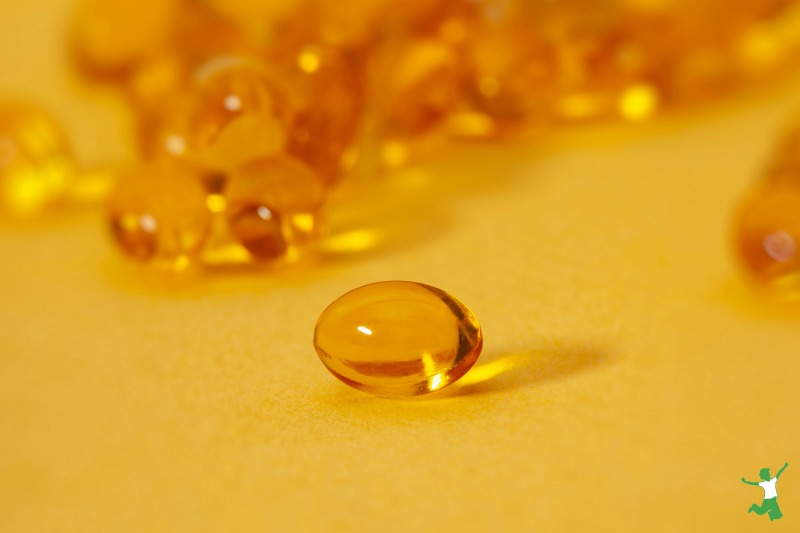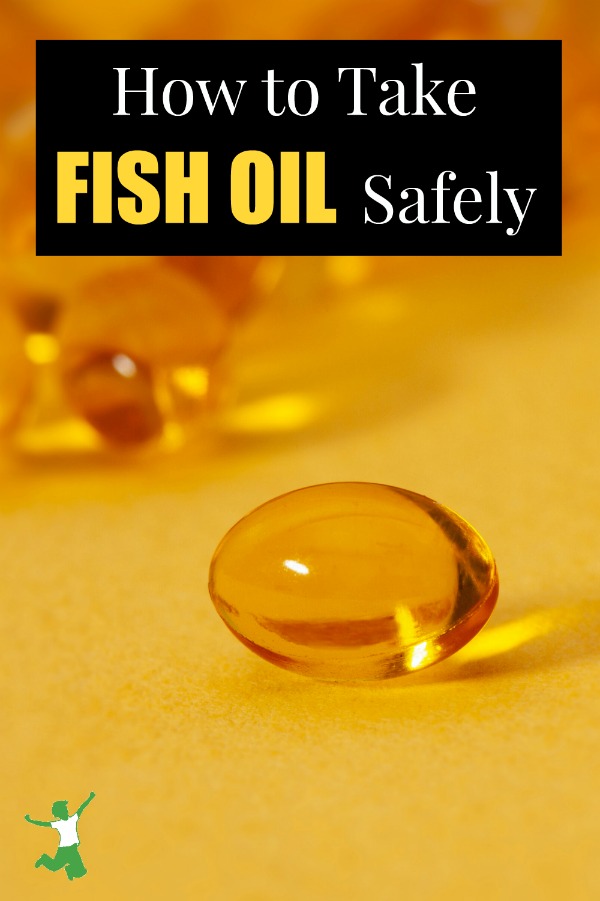Omega-3 fats taken as fish oil are popular for many health conditions, but consumed as part of a conventional diet can actually do more harm than good.

Omega-3 fats are certainly the darling of conventional and alternative medicine alike. Fish oil loaded with heart-healthy “good fats” are flying off the shelves of healthfood stores and are prominently featured on supplement displays in many doctors’ offices.
You can even buy fish oil capsules at Wal-Mart!
Health Benefits of Omega-3 Fats
There is certainly little doubt that omega-3 fatty acids are important to health. According to Dr. Joseph Mercola, omega-3 fats are:
…significant structural components of the cell membranes of tissues throughout the body and are especially rich in the retina, brain, and sperm, in which docosahexaenoic acid (DHA) constitutes 36.4% of total fatty acids. (1)
Conventional sources like WebMD concur, stating that studies have shown that omega-3 fats can: (2, 3)
- Lower blood pressure
- Reduce triglycerides
- Slow the development of plaque in the arteries
- Reduce the chance of abnormal heart rhythm
- Reduce the likelihood of heart attack and stroke
- Lessen the chance of sudden cardiac death in people with heart disease
Fish Oil Contraindications
While there is little dispute on either side of the medical aisle about the necessity of omega-3 fats in the diet for optimal health, consumers need to be aware that there are pitfalls associated with these good fats. This is particularly true for vegetarians or those who otherwise consume a nutrient-poor Standard American Diet (SAD).
First of all, it is not wise to consume the high heat processed, industrialized fish oils that take center stage on supplement shelves at the store and in doctors’ offices. High heat processing destroys the benefits of fish oils. The delicate omega-3 fats are highly subject to rancidity from heat.
In fact, some would argue that taking fish oil does more harm than good as the good fats oxidized by processing become loaded with free radicals and when consumed regularly can contribute to aging and the development of chronic disease.
Even consumers who make the effort to source omega-3 fats rendered with no heat in the form of virgin high vitamin cod liver oil as prized by Traditional Societies such as the South Sea Islanders studied by Dr. Weston A. Price need to exercise caution.
The omega-3 fats EPA (eicosapentaenoic acid) and DHA (docosahexaenoic acid) can actually contribute to health problems when not balanced by other important fatty acids in the diet.
The Journal of Nutrition Research reports that intake of DHA and EPA is associated with an increased risk of hemorrhagic stroke in rats. People on anticoagulant drugs need to be especially careful. EPA and DHA may cause the blood to thin and trigger excess bleeding. (4)

Arachidonic Acid Key to Avoiding Omega-3 Supplementation Risks
How does a savvy consumer obtain the numerous health benefits of omega-3 fats DHA and EPA with no downside risks?
The key is to balance the intake of omega-3 fats in whole foods and traditionally rendered oils with the omega-6 fat arachidonic acid (ARA). Foods rich in ARA include meat fats, eggs, and liver. These are the very foods eschewed by conventional dietary sources…the same ones recommending a daily ration of industrialized fish oil!
It is especially important for pregnant women who supplement with fish liver oils to consume meat fats, eggs (yolks), and liver.
The Weston A. Price Foundation reports that cod liver oil containing substantial levels of omega-3 EPA can actually contribute to hemorrhage during the birth process. (5)
This risk is mitigated by arachidonic acid (ARA), an equally important omega-6 fatty acid found in liver, egg yolks, and meat fats. It is not found in any plant-based foods with the exception of moss and algae. (6)
For this reason, pregnant women taking cod liver oil to benefit themselves and their baby must be sure to follow a Traditional Diet during pregnancy and nursing. Just taking cod liver oil as part of a nutrient-poor, ARA deficient conventional diet is unwise.
So bring on those heart-healthy omega-3 fats! Let’s all be sure, however, to consume them as part of a diet that also includes meat, liver, and eggs as wisely demonstrated by chronic disease-free Traditional Societies.
References
(1) Omega-3 Benefits and Supplementation
(2) Fish Oil Supplements for High Blood Pressure
(3) Omega-3 Fatty Acid Fact Sheet
(4) Polyunsaturated Fatty Acids Increase Oxidative Stress in Rats
(5) Pregnancy and Lactation Diet
(6) Arachidonic Acid Food Sources
More Information








Does taking high vitamin butter oil along with FCLO alleviate the danger for hemmoraging during pregnancy? I also eat a lot of eggs and meat (I don’t currently have liver in my diet), but concerned about too much FCLO while pregnant.
What is the story about taking FCLO and Skate oil together? Is that a good way to go to get the right amount of what is needed?
i just read eat fat lose fat by sally fallon and thats a great book on fermented codliver and coconut oil helps with all types of issues skin conditions and stomach issues. i’ve takn coconut oil and it helps you go to the bathroom, and codliver they say to take it before breakfast i still ahvent done that becasue the fish taste in th morning is a little too much for me. but i will do it someday for now im really liking coconut oil it helps me… my goal 2 to 3 times a day.
Great article. I just started taking FCLO for my pregnancy and knew there were issues about digestion/assimilation. This article clears it up for me!
We usually eat canned salmon as an affordable source of wild omega-3 rich fish. However, I believe canned food is heated in the canning process. Is that correct? Does this mean we shouldn’t eat canned fish?
Dr. D’Adamo has done some great research. However, some of the methods and foods he used for his research weren’t exactly “Kosher”. For example, he would take some foods and mix them with the different blood types in petri dishes to determined wether the foods were good/harmful. I find this method flawed, because food goes through a number of steps/processes before it/the nutrition from it enters the bloodstream. He also used primarily conventional meats/produce/dairy for his research. What’s to determine that the negative reactions some blood types were having wasn’t related to poor quality/added hormones/pasteurization/pesticides present in the foods, and not actually the foods themselves? There is a huge difference between raw milk form pastured A2 cows, and conventional milk from a type A1 cow raised on hormones, antibiotics, and GMO grain/crappy candy, whom may never see the light of day. – So thats my take! 😉
I never liked it anyway, it was hard for my stomach and it’s taste was terrible!
whaaaat?>?
Still do not understand – whether to use the capsules Omega-3 and how to not a health problem ..?
How about raw cod liver oil? I just ordered some after reading about people having trouble with fermented cod liver oil upsetting their stomachs. Anybody else have experience with it?